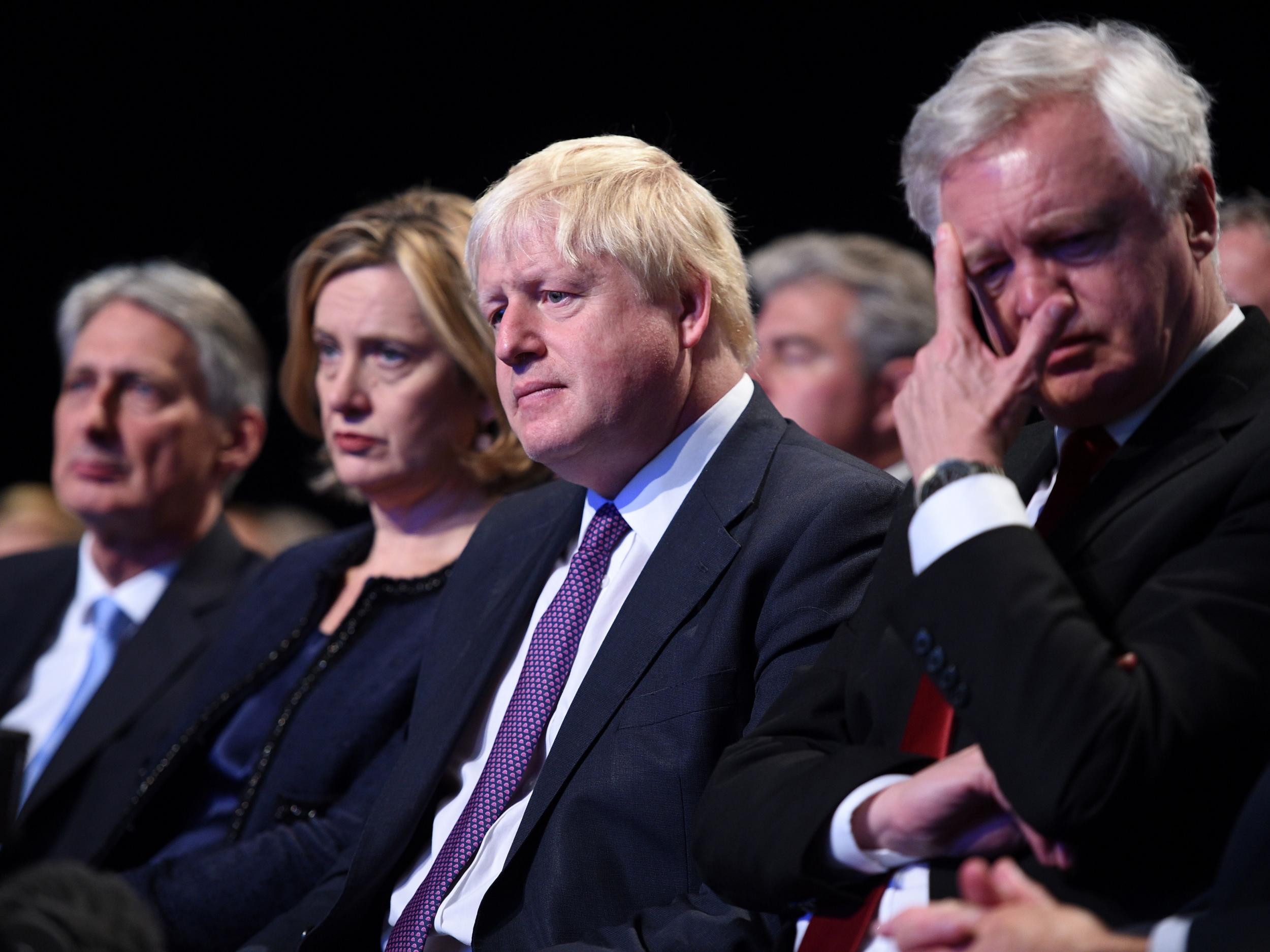If Theresa May does commit herself to a Cabinet reshuffle, she may make more enemies than friends
Newspaper headlines on Sunday about an imminent reshuffle might well box Ms May into doing one; failing to do so now would look weak. But the Prime Minister would be wise to look before she leaps

Your support helps us to tell the story
From reproductive rights to climate change to Big Tech, The Independent is on the ground when the story is developing. Whether it's investigating the financials of Elon Musk's pro-Trump PAC or producing our latest documentary, 'The A Word', which shines a light on the American women fighting for reproductive rights, we know how important it is to parse out the facts from the messaging.
At such a critical moment in US history, we need reporters on the ground. Your donation allows us to keep sending journalists to speak to both sides of the story.
The Independent is trusted by Americans across the entire political spectrum. And unlike many other quality news outlets, we choose not to lock Americans out of our reporting and analysis with paywalls. We believe quality journalism should be available to everyone, paid for by those who can afford it.
Your support makes all the difference.Before her calamitous speech to Conservative conference, Theresa May’s allies were hoping that it would relaunch her premiership. After the catastrophe in Manchester provoked an attempt to oust her, May supporters now flag up a cabinet reshuffle as the way to restore her rapidly diminishing authority.
Even a weakened prime minister enjoys considerable power of patronage, so when they are in trouble, a reshuffle can appear an attractive option. The reality is different. Shaking up your ministerial team is a messy business, and moving the pieces around the cabinet chessboard rarely goes to plan. It is easier to make enemies than win friends; by definition, more MPs will be unhappier afterwards than happier since only relatively few will win promotion. Even leaders who were much stronger than Ms May, such as Tony Blair, found reshuffling their pack painful and difficult.
Newspaper headlines on Sunday about an imminent reshuffle might well box Ms May into doing one; failing to do so now would look weak. But the Prime Minister would be wise to look before she leaps. Weakened by her election disaster in June, she left almost all her top team in their posts. She is no stronger now.
Yet there is a strong case for injecting some fresh blood into a lacklustre Cabinet. It is unclear what Chris Grayling, Andrea Leadsom, Elizabeth Truss and Sir Patrick McLoughlin bring to the party. There is no shortage of younger talent on the back benches and the junior ministerial ranks, such as Dominic Raab, Tom Tugendhat, James Cleverly, Johnny Mercer, Rory Stewart and Kemi Badenoch.
Among Tory MPs elected since the 2010 election, there is little appetite for Ms May’s successor to come from today's senior cabinet ministers. The Young Turks should be given a chance to show their mettle, just as Michael Howard promoted David Cameron and George Osborne to senior shadow cabinet posts on becoming Tory leader in 2003.
Of course, one name is likely to dominate any reshuffle headlines, whether Ms May likes it or not. If she tried to move Boris Johnson from the Foreign Office job to which he is patently unsuited and make him Tory party chairman, he might resist the perceived demotion and sulk off to the back benches. He might then become a ringleader for hardline Brexiteers if Ms May makes too many concessions for their liking in the EU negotiations.
Yet if she left Mr Johnson in his current job, she would be accused of weakness after he openly defied her by setting out his own Brexit agenda.
So a reshuffle is unlikely to be a panacea and, like Ms May’s conference speech, could go wrong. The attempt to force her to stand down, led by the former Tory chairman Grant Shapps, may have failed for now, but the Prime Minister knows she is living on borrowed time. Her critics will almost certainly strike again. There is no chance she will lead her party into another general election and she should now accept that publicly. Even some outwardly loyal cabinet ministers privately doubt she will still be in Downing Street when the UK leaves the EU in March 2019 – now surely the outer limit of her ambitions.
To achieve that, Ms May will need to outline a much bolder domestic agenda – notably on housing – than she did in Manchester last week. She will also have to unite her Cabinet behind a clear vision of what the UK-EU relationship will look like in the long term, and then negotiate positively and constructively to achieve it. Otherwise Tory divisions and her own unstable position will risk the EU talks ending with a bad deal – or, worse, no deal. Theresa May needs to get a grip, and fast. If she cannot, she should leave the stage.
Join our commenting forum
Join thought-provoking conversations, follow other Independent readers and see their replies
Comments